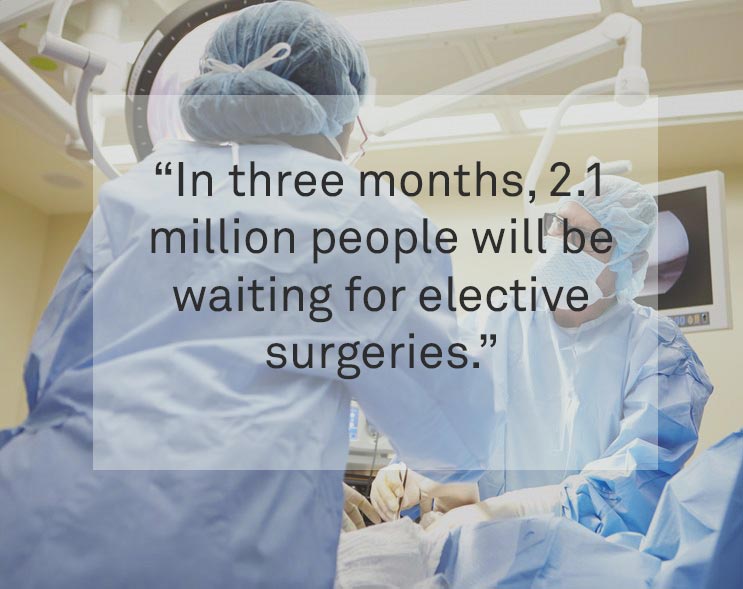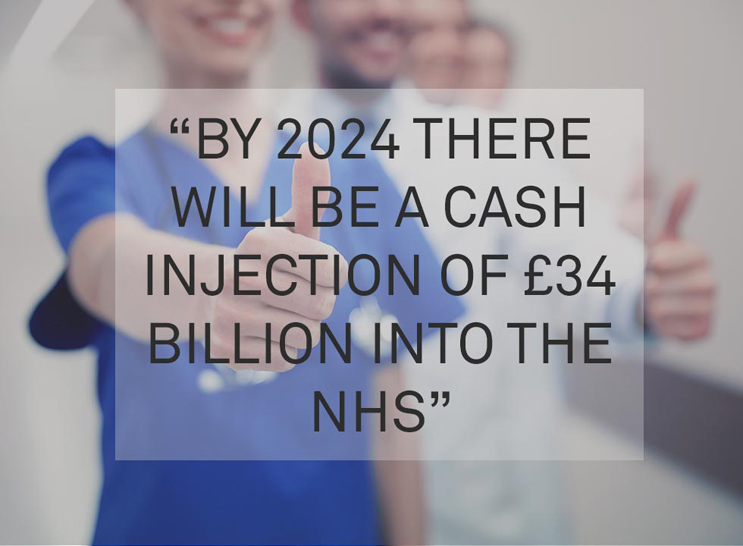MedTech Industry
Engagement with NHS
England after Covid-19
![['MedTech Industry\r', 'Engagement with NHS\r', 'England after Covid-19']](/sites/igesgroup/deviceaccess.eu/myzms/content/e45/e298/NHSPEOPLERESIZED.jpg)
Coronavirus is not just a physical illness. Its consequences extend far beyond the body, out into society and the economy. Beyond the tragic loss of life, we are also seeing the world come to a standstill. As the virus continues to spread like wildfire, workers are forced to leave their offices and work from home, that’s if they’re lucky enough to be able to do so.
What happens when your office is the NHS? Hospitals have been so overwhelmed by Covid-19, that it has become very difficult for MedTech sales executives to go in and make the face to face contact that is so important for them and for training clinicians on exciting new treatments and therapies. Working from home can only be sustained for so long in this case.
A fire can be contained and extinguished though, and hopefully, in around 3 months we will see normality begin to return. When this happens, what is your strategic plan? How exactly do you go about reengaging with a healthcare system that has been so exhausted by coronavirus?

How coronavirus has affected hospitals
The importance of the NHS has never been underestimated. Lives depend on our health service and staff do a great job with what they have, but they will be inundated with covid-19 patients and things have had to change to save lives. The government has put measures in place, meaning that as of the 15th of April, all non-elective surgeries will be postponed for at least three months. Considering that around 700,000 people undergo elective surgery a month, this change will affect millions of lives, but considering the scale of the threat, it seems necessary.
This push back of non-urgent matters has surely effected MedTech companies who have been campaigning to get their life-improving and changing devices into the NHS, leaving sales executives at a loss for what to do. There is only so long that someone in sales can work from home before it starts to feel like productivity is fading. So, what do you do? The simple answer is being prepared for the future and get your re-engagement strategy ready for once NHS elective surgery begins to recover.
Currently providers of NHS commissioned services ("providers") and NHS commissioners may not be aware of new devices, diagnostics and digital innovations that improve patient care and service efficiency. In addition, those that are aware of these innovations, may find they are not included on common procurement framework s or do not have sustainable reimbursement mechanisms in place. As a result, patients’ access to these innovations may be delayed and providers and NHS commissioners may not capture potential service efficiencies.
The MedTech Funding Mandate Policy aims to address these issues through providing guidance for NHS commissioners and providers each year on which NICE-approved devices and diagnostics (and ultimately digital therapeutics) improve patient care and reduce costs in-year. The uptake of these innovations will be supported through including them on national procurement frameworks, proposing reimbursement mechanisms and providing small amounts of financial support to assist providers with implementation.

Looking to the brighter future…with a £34Bn cash injection
In many ways, now is the start of a great time to get your tech adopted into the NHS and start helping improve patient’s lives. On the 12th of March, the new budget for 2020 stated that the government would increase funding for the NHS, with a cash increase of £34 billion a year by 2024. With far more cash and in light of the pandemic that has depleted resources and highlighted a lack of preparedness, hospitals will be looking to invest in new devices that will drive profitable elective productivity to save and help to improve lives, as well as being affordable and cost effective.
Not only this, but the process of adoption into the NHS is changing due to Brexit. EU procurement rules will no longer apply in the UK, meaning that there will no longer be the need to go to an EU tender for all EU countries to compete on it. Eradicating this can help to expedite the process if done correctly. Combined with more receptive hospitals, there is opportunity here, along with the 3 month 2.1 million patient waiting list to get through.
How to re-engage with the NHS
When planning your strategy for re-engagement, a better understanding of the current treatment activity within the NHS will help you to make the most of this situation. Having insights into future waiting lists and retrospective care activity for hospitals would help you to better understand where your device is most needed, where to focus your sales team, and give you a better idea of how to promote its clinical value. The fastest way to get your device adopted is often to solve a hospital productivity issue and demonstrate benefits to patients, providers of care, and payers of care. Then there is optimizing your sales price, but ensuring it gets to the patients who need it most. These are the principles and pillars of successful market access.
How Device Access can help
Device Access are hosting free regular webinars to help you learn more about the best way to re-engage with the NHS and avoid you getting into a competitive price war with competitors which leads to price erosion, just to sell product to make up the numbers.
The webinars will feature guests from within the NHS as well as market access experts. Keep an eye on the Device Access LinkedIn page to learn more and attend the informative events. We want to help you get your great technology to patients faster.
If you would like to learn more about us and the services we offer, click here. If you have any queries or would like to get in touch, click here.